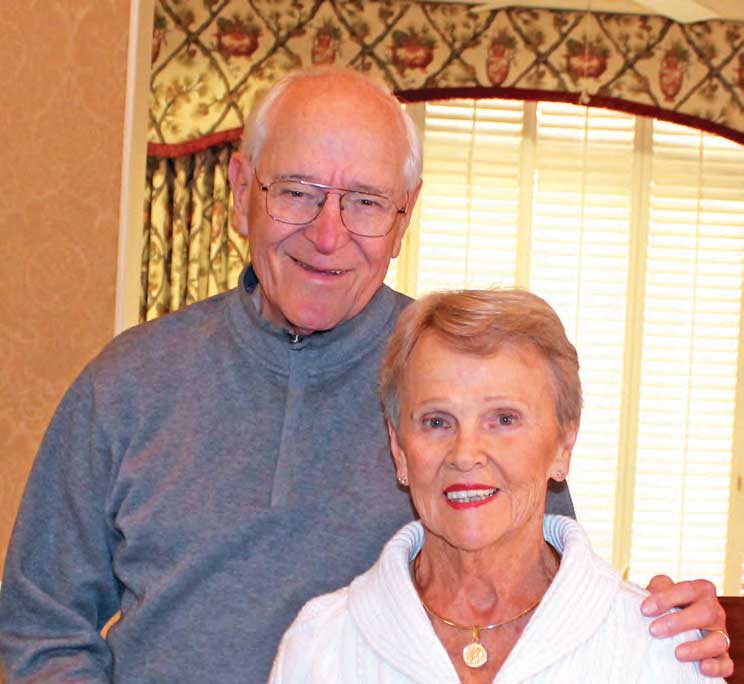
HAPPY AND JOYFUL
Nancy and Bill Douglas have had a successful life and marriage, recently celebrating their 60th wedding anniversary. As faithful Christians, they believe that the greatest achievement and joy of their lives is “having raised three Christian children who have, in turn, raised five Christian grandchildren.”
Bill and Nancy moved with their dog “Chip” to Kirby Pines in November 2017 from Germantown, where they had lived their entire married life. They first met in 1957 when Nancy’s brother invited his friend Bill Douglas to their home to meet one of Nancy’s friends. Well, Nancy decided that she was “the one” for Bill. Nancy and Bill married on June 14, 1959.
Bill Douglas was born in Memphis in 1936. He attended Snowden Jr. and Central High Schools. He graduated from Memphis State University with a degree in Sales and Advertising and went to work immediately selling real estate. He first worked in sales of houses but later worked in commercial real estate selling such things as office buildings and hotels. Bill was recognized in “The Million Dollar Club” for having sold that amount in a year. He retired at age 65 after 42 years with Cooper Realty.
Nancy Pickering Douglas was born in Germantown in 1938. Nancy says she was blessed to be born into a Christian family. Being the only girl with two brothers, she became “a Daddy’s girl”. Her father’s premature death just weeks before her graduation from high school put Nancy into a deep depression for some time. Nancy attended Germantown High School and Memphis State University for one year. However, the non-academic world beckoned and so she was hired by MLG&W to work in the Records Department. When she “caught” Bill Douglas her life “took on a happy and joyful experience.”
Following their marriage, Bill and Nancy moved to Germantown. Their first son, William, was born 1 ½ years later. Sadly, 18 months later, an infant daughter, Elizabeth Ann, died after 3 days. “God needed her”, says Nancy but she experienced another period of depression with this loss. However, one year later, they were thrilled when their 2nd son, Joe, was born healthy and happy. They were equally thrilled when a daughter, Nancy Anne, was born 18 months later. Raising 3 children was a lively but pleasurable experience for Nancy. She says “The few bumps we had were easy to resolve”. Nancy, fortunately, was able to be “a stay at home mom” which allowed her to be involved in all the children’s activities, including the PTA. A testimony to Nancy’s loving role as a mother was presented to her on her 80th birthday. A book entitled “Making Memories” contained photos and quotes of love, appreciation and remembering fun times from her children, son and daughters-in-law and grandchildren. “We always had time for family vacations as well as just the two of us. Bill’s career afforded us the opportunity to have so many wonderful trips and interesting destinations”, says Nancy.
Although Nancy was busy as a homemaker she also was very involved in the Suburban Garden Club and Germantown Women’s Club. Bill became active in the Germantown Civic Club, the Optimist Club, Leadership Memphis, the Boy Scouts and served as President and Board Member of the Germantown Horse Show. Bill coached Little League, football and basketball, involving himself in all of his children’s activities. He also loved to fish, hunt and play golf in his “spare time”. At St. George’s Episcopal Church, Bill helped start the first Adult Bible Class, served on a committee to train and direct the Acolytes and was Chairman of the Ushers. Nancy and Bill are now members of Faith Anglican Church where Bill serves as an Usher and Nancy helps with Oblations.
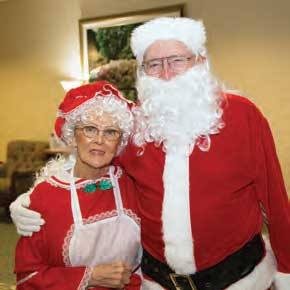
Since moving to Kirby Pines, Bill has been involved in the Garden and Ham’ateur Clubs. In 2018, Bill and Nancy took on the role of Mr. & Mrs. Santa Claus in the annual Christmas Eve Program at Kirby Pines. Nancy continues to play golf frequently. Most importantly, she has quietly assumed the role as a helper to many residents who need assistance. When Bill and Nancy moved to Kirby Pines, they became next-door neighbors to 99-year-old resident, Virginia Granger. Nancy says “Virginia became one of the best friends I ever had. We loved each other immediately. She truly blessed my life”. Unfortunately, Virginia’s recent death has left a big void in Nancy’s life.
However, both Bill and Nancy have stated that their lives continue to be blessed since moving to Kirby Pines. “This is a joyful time in our lives. We have met and feel so close to so many of the residents. Now, we have a much larger and wonderful family of beautiful people. We have always loved people and wanted to help others”, say Nancy and Bill. Because of their personalities and helping nature, Bill and Nancy Douglas are a wonderful “fit” for our Kirby Pines family and are an example for all of us.
Written by Joan Dodson, Resident, Kirby Pines


 Handwashing plays a major role in preventing the spread of diseases. According to the CDC, handwashing is the single most important means of preventing the spread of infections. Washing your hands regularly with soap and water can protect you from many illness caused by viruses and bacteria. If soap and water are not available, use an alcohol-based handrub (wipes or gel).
Handwashing plays a major role in preventing the spread of diseases. According to the CDC, handwashing is the single most important means of preventing the spread of infections. Washing your hands regularly with soap and water can protect you from many illness caused by viruses and bacteria. If soap and water are not available, use an alcohol-based handrub (wipes or gel).
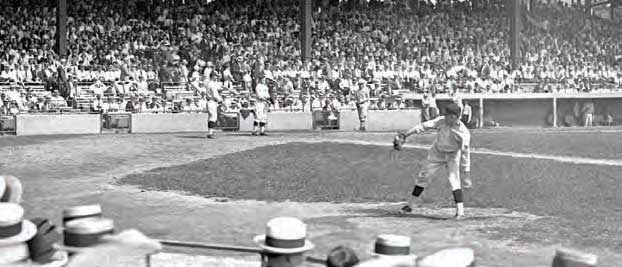
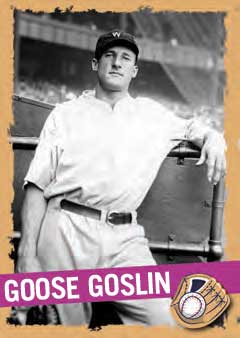 Many years ago one of the most amazing games in the series was played. In 1924 the World Series between the New York Giants and the Washington Senators was tied after six games. Griffith stadium in Washington was packed for the final game on October 10, 1924. They came to the ninth inning with the game score tied at three runs each. New York was put down in order and Washington came to bat. The home team fans screamed for one lone run, which would win the series and the world championship. The first two men made outs and it looked like extra innings. Then a player named Leon “Goose” Goslin came to the plate.
Many years ago one of the most amazing games in the series was played. In 1924 the World Series between the New York Giants and the Washington Senators was tied after six games. Griffith stadium in Washington was packed for the final game on October 10, 1924. They came to the ninth inning with the game score tied at three runs each. New York was put down in order and Washington came to bat. The home team fans screamed for one lone run, which would win the series and the world championship. The first two men made outs and it looked like extra innings. Then a player named Leon “Goose” Goslin came to the plate.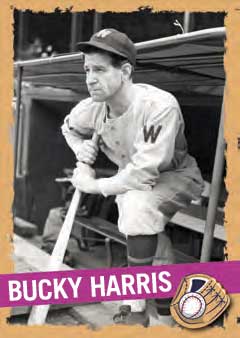 Goslin was slowing down for a triple when the third base coach waved him on to try for an in-park home run. The shortstop took the peg from left-center, and fired the ball to the catcher. Goslin slid into home in a cloud of dust, seemingly a split second before the tag. The catcher followed the routine of throwing the ball around the bases, just in case, while waiting for the umpire to make the call. The umpire made a delayed call, consulting the other umpires, and then cried, “You’re out!”
Goslin was slowing down for a triple when the third base coach waved him on to try for an in-park home run. The shortstop took the peg from left-center, and fired the ball to the catcher. Goslin slid into home in a cloud of dust, seemingly a split second before the tag. The catcher followed the routine of throwing the ball around the bases, just in case, while waiting for the umpire to make the call. The umpire made a delayed call, consulting the other umpires, and then cried, “You’re out!”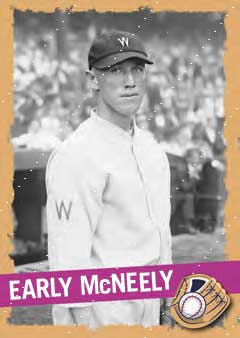
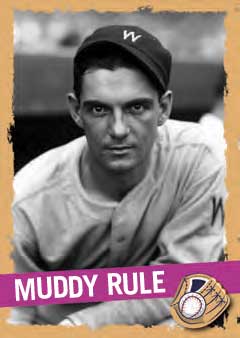 A 20th Century evangelist named Angel Martinez used this story in his sermon, “Play Ball.” First Base represented salvation, Second Base, baptism and church membership, Third Base was Christian service and Home Plate stood for heaven. In his sermon’s conclusion, Martinez, building upon the 1924 Series even said “you can be baptized and join the church and do many good works but if you miss the first base of salvation, you too, will be called out at the home plate of heaven.
A 20th Century evangelist named Angel Martinez used this story in his sermon, “Play Ball.” First Base represented salvation, Second Base, baptism and church membership, Third Base was Christian service and Home Plate stood for heaven. In his sermon’s conclusion, Martinez, building upon the 1924 Series even said “you can be baptized and join the church and do many good works but if you miss the first base of salvation, you too, will be called out at the home plate of heaven.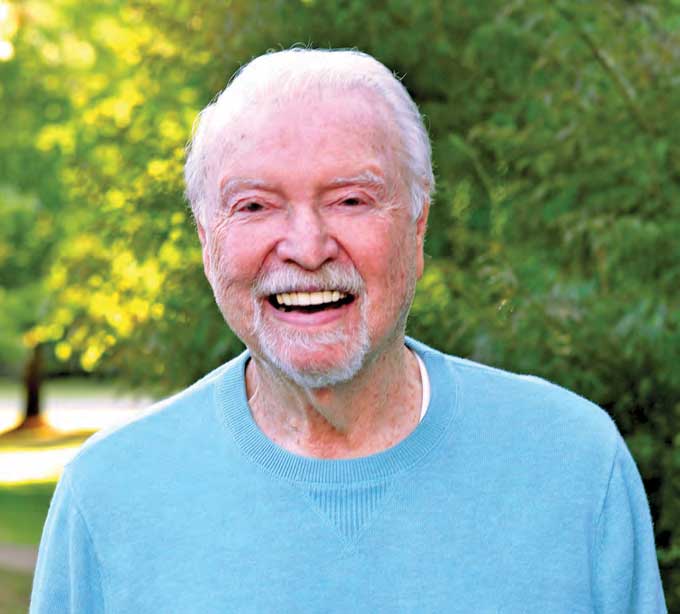
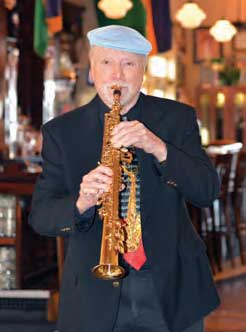

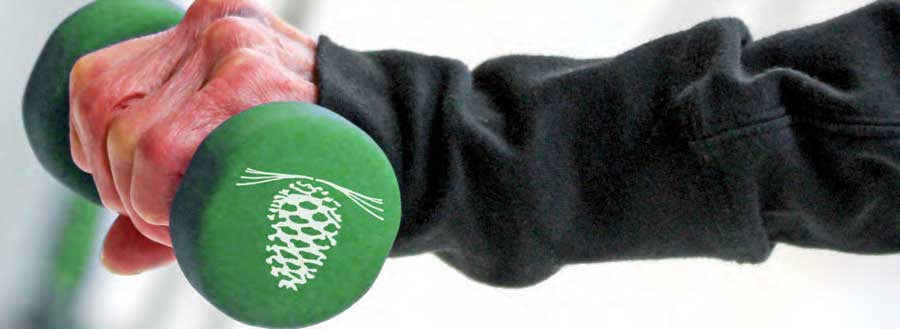
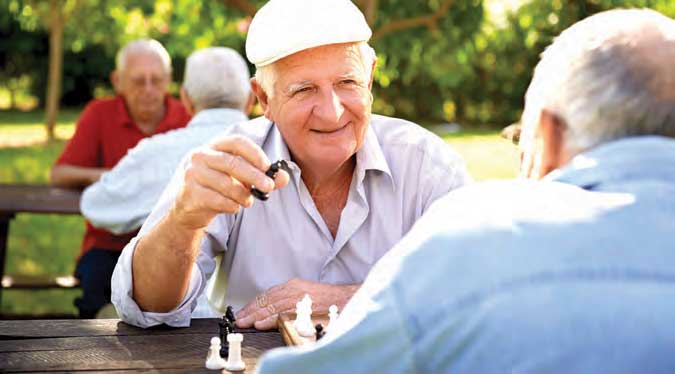
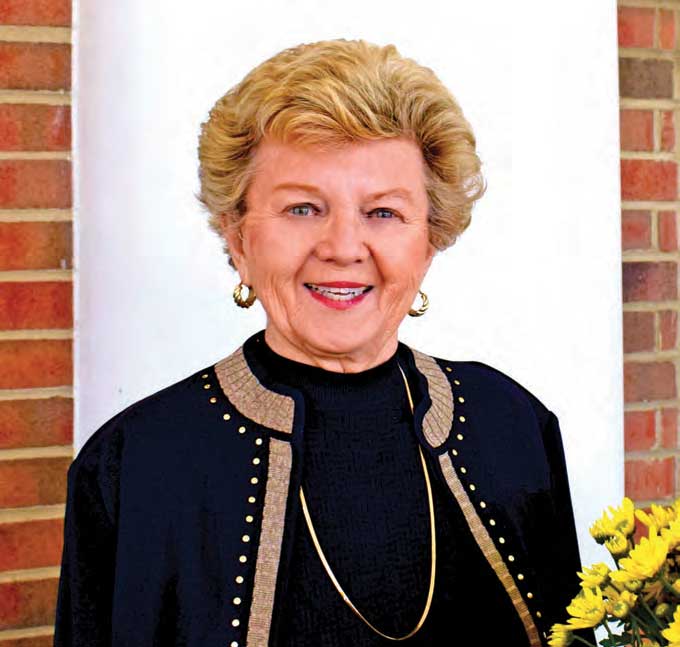
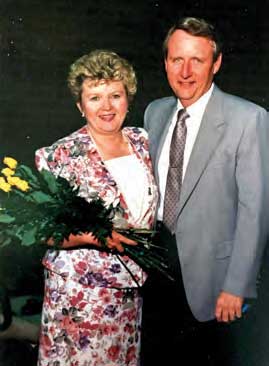
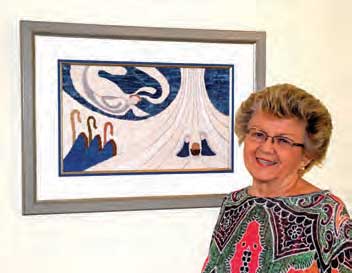
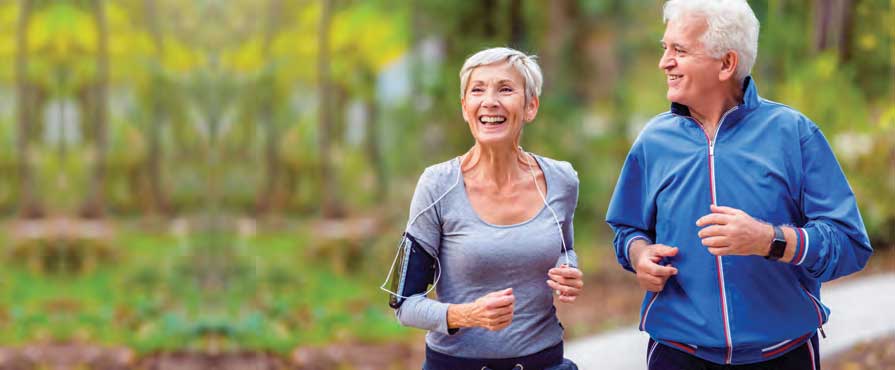
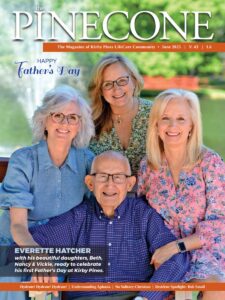

 © 2025 Kirby Pines LifeCare Community. All Rights Reserved |
© 2025 Kirby Pines LifeCare Community. All Rights Reserved | 